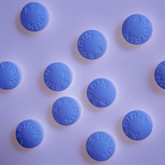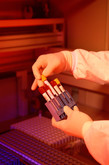Biosimilars
Medicines spending in Brazil
The Brazilian pharmaceutical market is the third largest in the Americas region, behind the US and Canada; it ranks first in the Latin American region. Pharmaceutical demand will continue to rise, fuelled by increasing disposable income. Despite this positive outlook, the trade deficit in Brazil grew from US$700 million at the end of the 1980s to a cumulative US$7.13 billion in 2008. In 2008 alone, Brazil imported US$1.4 billion in vaccines, serum and blood products, while exporting US$37 million in medicinal products with low added value [1].
Biosimilars to replace 70% of chemical drugs
Biosimilars will replace some 70% of global chemical drugs over the next couple of decades, according to industry experts. This replacement will occur due to the better safety profiles of biosimilars compared to chemical drugs and the fact that many originator biologicals will lose their patent protection in the coming years, according to Mr Appaji, Director General of Pharmaceuticals Export Promotion Council of India (Pharmexcil).
AMAC and GPhA hit back at Big Pharma over biosimilars
The Association of Mature American Citizens (AMAC) and the Generic Pharmaceutical Association (GPhA) have reacted strongly to the actions by Amgen and Genentech, which aim to make it more difficult for patients to get access to biosimilar medicines [1].
Biologicals boom
Researchers predict that the present list of top 10 blockbuster drugs will change dramatically by 2014. The predictions are that by 2014 biological drugs will topple the present market leaders Pfizer’s Lipitor (atorvastatin) and Sanofi’s Plavix (clopidogrel), both of which are small molecule chemical entities [1].
Biotech firms try to limit biosimilar substitution in US
FDA is still to approve a biosimilar and has yet to issue final guidelines outlining the regulatory requirements for approval of a biosimilar in the US.
Assessment of biosimilarity under the BPCI Act
The Biologics Price Competition and Innovation (BPCI) Act defines a biosimilar as a product that is highly similar to the reference product notwithstanding minor differences in clinically inactive components and without clinically meaningful differences in terms of safety, purity, and potency. Although draft guidances issued by FDA do begin to clarify the issue, little or no discussion regarding how similar is considered highly similar is given in the BPCI Act and no criteria for assessing biosimilarity were mentioned [1].
G-CSF biosimilars – World Marrow Donor Association position
The World Marrow Donor Association (WMDA) has expressed its position on the use of granulocyte colony-stimulating factor (G-CSF) biosimilars in healthy donors in an article published in the journal Haematologica [1].
Mobilization of stem cells in healthy donors by G-CSF biosimilars shows comparable efficacy and safety to Neupogen
Originator human recombinant granulocyte colony-stimulating factor (G-CSF) filgrastim has been widely used for the mobilization of CD34+ stem cells in healthy donors. However, there is limited experience with the use of biosimilar G-CSF for the mobilization of peripheral blood stem cells (PBSCs), especially in healthy donors. A recent study by Professor Schmitt and co-authors has addressed this issue and found that biosimilar G-CSF showed comparable efficacy and safety with reference G-CSF (Neupogen) when used for the mobilization of CD34+ stem cells, as well as CD3+ T-cells and nucleated cells, in healthy donors [1].
Top developments in biosimilars during 2012
Much has happened in the biosimilars’ industry over the last year.
Overview of research on G-CSF biosimilars in 2012
Period: January to August 2012
A life-threatening complication for patients undergoing chemotherapy is febrile neutropenia, involving a loss of neutrophils (white blood cells) and fever [1]. Granulocyte colony-stimulating factors (G-CSFs) are growth factors, which stimulate the bone marrow to produce white blood cells and restore neutrophil production. In oncology and haematology, G-CSF is used with certain cancer patients to accelerate recovery from neutropenia after chemotherapy, allowing higher-intensity treatment regimens.













